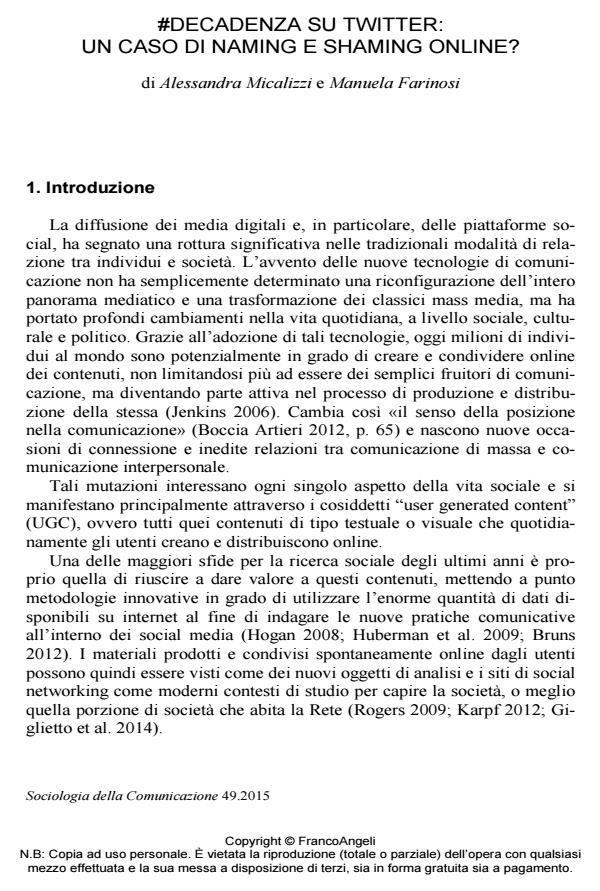#decadenza su Twitter: un caso di naming e shaming online?
Titolo Rivista SOCIOLOGIA DELLA COMUNICAZIONE
Autori/Curatori Alessandra Micalizzi, Manuela Farinosi
Anno di pubblicazione 2015 Fascicolo 2015/49
Lingua Italiano Numero pagine 22 P. 83-104 Dimensione file 265 KB
DOI 10.3280/SC2015-049006
Il DOI è il codice a barre della proprietà intellettuale: per saperne di più
clicca qui
Qui sotto puoi vedere in anteprima la prima pagina di questo articolo.
Se questo articolo ti interessa, lo puoi acquistare (e scaricare in formato pdf) seguendo le facili indicazioni per acquistare il download credit. Acquista Download Credits per scaricare questo Articolo in formato PDF

FrancoAngeli è membro della Publishers International Linking Association, Inc (PILA), associazione indipendente e non profit per facilitare (attraverso i servizi tecnologici implementati da CrossRef.org) l’accesso degli studiosi ai contenuti digitali nelle pubblicazioni professionali e scientifiche.
La diffusione delle piattaforme social ha portato profondi cambiamenti nelle modalità di interazione tra individui e società, dando origine a nuove pratiche e nuovi territori di discussione collettiva e ampliando gli spazi di interazione e formazione di opinioni. In questo contributo l’attenzione sarà focalizzata su un caso specifico: la decadenza di Berlusconi dal ruolo di Senatore. Attraverso l’analisi quali-quantitativa di 1.500 tweet contrassegnati dall’hashtag #decadenza, saranno ricostruite le caratteristiche di un modo particolare di essere parte del dibattito politico di un Paese, soffermandosi nello specifico sull’uso degli hashtag e dei retweet e sulla sentiment analysis dei contenuti.
Parole chiave:Partecipazione dal basso, digital methods, Twitter, Berlusconi, decadenza, sentiment analysis
Alessandra Micalizzi, Manuela Farinosi, #decadenza su Twitter: un caso di naming e shaming online? in "SOCIOLOGIA DELLA COMUNICAZIONE " 49/2015, pp 83-104, DOI: 10.3280/SC2015-049006